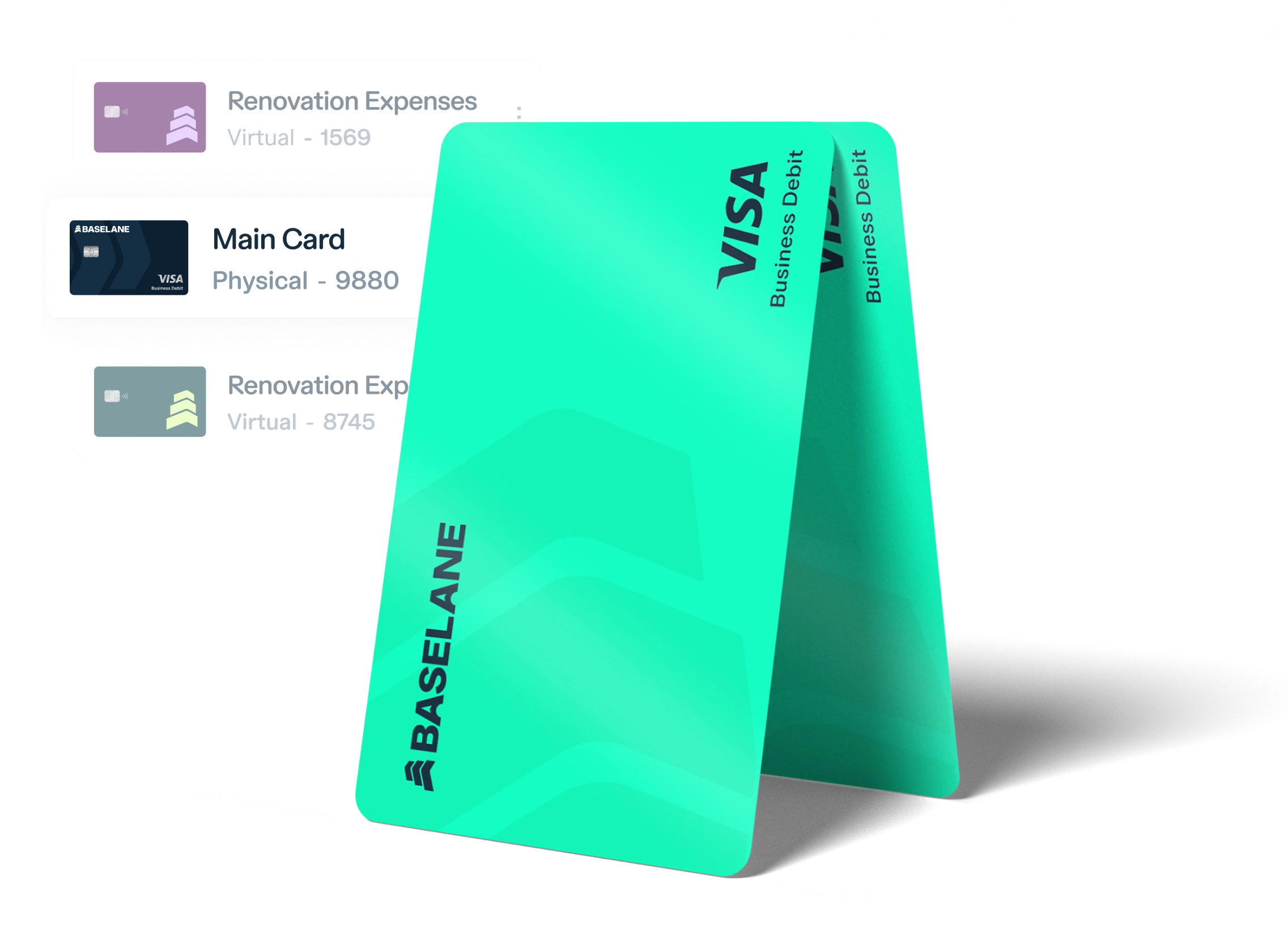Managing rental property finances can feel overwhelming, with income, expenses, security deposits, and multiple properties to track. Traditional banking often falls short, leading to fragmented systems, manual bookkeeping, and missed opportunities for growth.
Fortunately, virtual banking platforms offer tailored solutions for landlords, simplifying financial management and boosting efficiency.
This guide will explore the top free virtual bank accounts available for landlords in 2025, highlighting essential features and helping you choose the ideal digital banking solution to streamline your rental business.
Key Takeaways
- Virtual bank accounts offer landlords specialized tools for financial management without monthly fees.
- Key features include high Annual Percentage Yield (APY), unlimited sub-accounts, and integrated rent collection.
- Platforms like Baselane, Stessa, and Azibo cater specifically to real estate investors with robust features.
- Adopting a virtual account simplifies bookkeeping, enhances asset protection, and streamlines operations.
- Choosing the right virtual banking solution empowers landlords to save time, gain clarity, and grow their passive income.
What is a virtual bank account for landlords?
A virtual bank account, often referred to as an online-only bank account, operates entirely digitally without physical branches. These accounts leverage technology to provide banking services accessible through web browsers or mobile apps. For landlords, this means managing all financial aspects of their rental properties remotely and efficiently.
Unlike traditional banks, virtual accounts are built for modern, digital-first transactions and record-keeping. They are ideal for real estate investors who need flexible, accessible, and often more affordable financial tools. This digital approach aligns perfectly with the demands of remote property management.
Virtual accounts are especially beneficial for landlords managing multiple properties or those seeking a dedicated business bank account for sole proprietor to segregate personal and business finances. They offer specialized features that cater directly to the unique needs of rental businesses. You can learn more about how to set up your finances by examining whether it is good to have multiple bank accounts.
Essential features of a top bank account for landlords
Choosing the right virtual bank account can significantly impact your efficiency and profitability as a landlord. Several key features differentiate top-tier platforms designed for real estate investors. Prioritizing these functionalities ensures you select a solution that truly supports your business goals.
Free or low fees
The primary appeal of these accounts is their cost-effectiveness. The best virtual bank accounts for landlords offer no monthly fees, no minimum balance requirements, and transparent transaction costs. This allows you to retain more of your rental income.
Scrutinize potential fees for wire transfers, ATM withdrawals, or certain payment types. A truly “free” account minimizes expenses, maximizing your return on investment. This focus on cost savings is vital for landlords looking to optimize their finances.
High annual percentage yield (APY)
A competitive Annual Percentage Yield (APY) on your account balances allows your cash to grow while it sits. Some virtual banking platforms offer significantly higher APYs than traditional banks.
This feature is especially beneficial for holding security deposits or accumulating funds for future property investments. Maximizing your passive income through APY helps your money work harder for you. You can learn more about how to open a high yield savings account that benefits your rental business.
FDIC insurance
Ensuring your funds are protected is paramount. Look for virtual banking platforms that offer FDIC insurance through their partner banks. This protects your deposits up to standard limits, typically $250,000 per depositor, per insured bank, for each account ownership category.
Some platforms offer extended coverage, with limits up to $3 million, through sweep programs with multiple partner banks.
Dedicated sub-accounts / virtual envelopes
Managing finances for multiple properties requires clear segregation of funds. Top virtual bank accounts allow you to create unlimited or numerous sub-accounts, also known as virtual envelopes. This feature is crucial for organizing income and expenses by property.
For landlords managing different investments, understanding how to utilize a business bank account with sub accounts can be incredibly beneficial.
You can set up separate accounts for each rental unit, for security deposits, an operating reserve, a capital reserve, or a general cash reserve account. This system simplifies bookkeeping, clarifies cash flow, and aids in tax preparation. It also helps manage specific funds like an HOA reserve fund if applicable.
Integrated rent collection & expense tracking
For landlords, seamlessly integrated financial tools are invaluable. The best virtual accounts offer built-in rent collection features, allowing tenants to pay via ACH or credit/debit card. This streamlines the payment process with automated invoicing and reminders.
Many platforms also provide robust expense tracking, often with automatic categorization of transactions. Some even auto-tag expenses by property and Schedule E category, significantly simplifying year-end tax preparation. This integration saves significant time and reduces manual errors.
Robust security features
Digital security is a critical consideration for any online banking solution. Look for features like two-factor authentication (2FA), advanced encryption, and virtual debit cards with spend controls. These measures protect your financial data from unauthorized access.
While approximately 29% of online banking users express concerns over financial data breaches, 68% trust online banking security. Choosing a platform with a strong security framework is essential for protecting your landlord finances.
Mobile & online accessibility
Virtual bank accounts are designed for accessibility from anywhere, anytime. Ensure the platform offers a user-friendly web interface and, ideally, a dedicated mobile banking app. This allows you to manage accounts, collect rent, and track expenses on the go.
While some platforms may be primarily web-based, strong mobile optimization is crucial for convenience. Easy access ensures you can always stay on top of your rental property finances. This flexibility empowers landlords to manage their business effectively from any location.
Customer support
Even with intuitive digital platforms, reliable customer support is essential. Look for virtual banks that offer multiple support channels, such as email, live chat, or phone. Prompt and knowledgeable assistance can be crucial when you encounter issues or have questions.
Ensure the support team is responsive and understands the specific needs of landlords. Strong customer service enhances your overall banking experience. It provides peace of mind that help is available when you need it.
Top free virtual bank accounts for landlords in 2025
The landscape of virtual banking is evolving rapidly, with several platforms specifically catering to the unique needs of landlords. Here’s a look at some of the top free virtual bank accounts for real estate investors in 2025. These options prioritize cost-effectiveness, specialized features, and digital convenience. You might want to consider the best bank for multiple accounts for your growing portfolio.
Baselane
Baselane is a next-generation banking and financial platform designed specifically for landlords. It offers a comprehensive suite of tools integrated under one roof. Baselane provides unlimited checking and savings accounts with no monthly fees.
With Baselane, you can earn up to 3.35% APY² on savings accounts. This makes it an attractive option for landlords looking to grow their cash reserves.
Baselane stands out with its built-in rent collection and bookkeeping features. You can automate rent invoicing, track payments, and categorize transactions by property and Schedule E category. This significantly simplifies financial tracking and tax preparation, helping the average investor save 150 hours and $5,000 per year.
Rent payments can be collected via ACH, credit, or debit cards, with payouts typically within 2-5 days. Baselane’s banking platform is FDIC insured up to $3,000,000¹ for funds deposited through Thread Bank; Member FDIC.
While primarily web-based, its intuitive interface is designed for seamless digital management of your entire rental portfolio.
Stessa
Stessa offers a free platform for rental property financial management, which includes integrated banking features. It provides unlimited sub-accounts for properties, similar to Baselane, which is essential for financial segregation. Stessa also offers a competitive APY, ranging from 2.31% to 3.98% depending on the plan and date.
Like Baselane, Stessa includes built-in accounting and mobile app accessibility for iOS and Android. It offers 1.10% cash back on spending and supports rent deposits via ACH and paper checks through its mobile app. Stessa’s FDIC insurance limit is $3 million via a sweep program.
Bluevine
Bluevine offers a free business checking account with no monthly fees and no minimum balance requirements. It provides up to five sub-accounts, which can be useful for landlords with smaller portfolios. Bluevine offers a strong APY, ranging from 1.50% to 3.70% depending on the plan, on eligible balances.
Bluevine provides various cash back options (1%, 4%, or 20% based on purchase). It supports ACH, paper checks, and cash deposits via the Green Dot Network. Bluevine’s FDIC insurance is up to $3 million through a sweep program, and it offers iOS and Android mobile apps.
Relay
Relay is a digital banking platform designed for small businesses, including real estate investors. It offers up to 20 fee-free checking accounts and two savings accounts, providing significant flexibility for managing multiple properties. Relay offers competitive APY on its savings accounts, ranging from 1.75% to 3.76%.
Relay supports ACH transfers, wires, checks, cash deposits via Green Dot Network, and payouts from processors like PayPal and Stripe. Its FDIC insurance limit is $3 million through a sweep program. Relay also provides iOS and Android mobile apps for convenient management.
Novo
Novo offers a free business checking account with no monthly fees and no minimum balance. While it does not offer interest on balances, it integrates well with various business software like QuickBooks and Xero. Novo allows for ACH and paper check payments, and supports integrations with platforms like Stripe, PayPal, and Square.
Novo does offer a business debit card, though specific cash back details are not stated. Its FDIC insurance is up to $250,000. Novo is available via iOS and Android mobile apps, making it a flexible option for landlords who prioritize software integrations.
Ally Bank
Ally Bank is a well-known online-only bank offering various personal and business accounts. While not exclusively for landlords, its digital-first approach and spending buckets can be adapted for rental property finances. Ally Bank offers an APY between 0.10% and 0.25% on its checking accounts.
Ally Bank allows up to 30 spending buckets for organization, which can function similarly to sub-accounts. It supports online/wire transfers and direct deposits, but does not offer cash deposits. Ally Bank provides iOS and Android mobile apps and offers 1%–3% cash back depending on the card.
Benefits of adopting a virtual bank account for your rental portfolio
Switching to a virtual bank account designed for landlords can revolutionize how you manage your rental properties. The advantages extend beyond mere convenience, impacting your financial clarity, operational efficiency, and long-term growth. These digital banking solutions empower you to take back time and gain greater control.
Simplified financial tracking & tax prep
Virtual accounts with integrated bookkeeping features automatically categorize your transactions. This includes auto-tagging income and expenses by property and Schedule E category. Such automation significantly reduces manual data entry and reconciliation, which means less time spent on financial busywork.
By maintaining organized records throughout the year, preparing for tax season becomes much smoother. You can generate accurate financial reports, including Schedule E forms, at the click of a button. This level of organization helps you maximize tax deductions and accurately assess your property’s profitability.
Enhanced asset protection & compliance
Separating your personal and business finances using dedicated virtual accounts is crucial for asset protection. It establishes a clear distinction between your personal assets and your rental business, offering a layer of liability protection. This separation is particularly important for landlords who operate as sole proprietors or have multiple rental properties.
Compliance with local regulations, especially regarding security deposit segregation, is also easier with virtual sub-accounts. This structured approach helps ensure you meet legal requirements. It also provides transparent financial records in case of audits or disputes. Learn more about setting up multiple bank accounts for real estate to bolster your financial structure.
Streamlined rent collection & payments
Virtual banking platforms often come with robust, built-in rent collection features. You can automate invoicing, send payment reminders, and even apply late fees, reducing the time spent chasing tenants. Tenants benefit from convenient online payment options, including ACH payments and credit/debit card processing.
Receiving rent via ACH transfer vs wire transfer typically ensures faster and more secure deposits directly into your account. Automated rent collection means reliable, on-time payments for you and a hassle-free experience for your tenants. You can manage how to receive ach payment easily, gaining peace of mind.
Increased efficiency & time savings
Digital banking streamlines numerous day-to-day tasks for landlords. Automating expense categorization, rent collection, and financial reporting frees up valuable time. This time can then be reinvested into growing your portfolio or focusing on other aspects of your business.
The ability to manage all financial aspects from a single dashboard, accessible from anywhere, enhances operational efficiency. The average investor saves 150 hours per year using integrated platforms. This significant time saving directly translates to a more manageable and scalable rental business.
Earning interest on balances
Unlike traditional checking accounts that often offer minimal or no interest, many virtual banking platforms for landlords provide competitive Annual Percentage Yields (APY) on your balances. This means the money sitting in your checking and savings accounts actively earns a return. For instance, some platforms offer APY rates up to 3.35%.
This passive income stream can contribute significantly to your overall profitability. It ensures that funds reserved for maintenance, vacancies, or future investments are working for you. This feature maximizes the financial benefits of keeping your funds organized within the platform.
Remote management & accessibility
The entirely online nature of virtual bank accounts means you can manage your rental property finances from anywhere with an internet connection. There’s no need to visit physical branches, saving you time and travel. This remote accessibility is ideal for landlords who manage properties in different cities or prefer a flexible work style.
Whether you’re collecting rent, paying bills, or reviewing financial reports, everything is available at your fingertips. This constant access provides unparalleled control and flexibility over your rental portfolio’s financial health. It empowers you to make informed decisions on the go.
Challenges for virtual bank accounts for landlords
While virtual bank accounts offer numerous advantages for landlords, it’s important to be aware of potential challenges and considerations. Understanding these aspects will help you make a more informed decision and mitigate any potential issues. Careful evaluation ensures the chosen platform truly meets your specific needs.
Data security & privacy concerns
Despite high levels of trust in online banking, concerns about financial data breaches exist among some users. While virtual banks employ robust security measures like encryption and two-factor authentication, no system is entirely foolproof. It is crucial to choose platforms with strong security protocols and a proven track record.
Always use unique, strong passwords and enable all available security features. Be vigilant about phishing attempts and regularly monitor your accounts for any suspicious activity. Protecting your sensitive financial data should always be a top priority.
Limited cash deposit options
One of the primary differences between virtual banks and traditional institutions is the lack of physical branches. This means depositing cash can be more challenging. While some virtual banks partner with networks like Green Dot for cash deposits, these options may involve fees or geographical limitations.
For landlords who primarily receive rent in cash, this can be a significant drawback. Consider your primary method of receiving income before committing to a purely virtual solution. Most landlords, however, prefer digital payments like ACH for efficiency and record-keeping.
Learning curve for new systems
Transitioning from traditional banking or manual spreadsheets to a new virtual banking platform can involve a learning curve. Familiarizing yourself with new interfaces, features, and workflows takes time and effort. Some landlords may find the initial setup and migration of data daunting.
However, most modern virtual banking solutions are designed to be user-friendly and offer extensive support resources. The long-term benefits of automation and streamlined processes often outweigh the initial effort. Patience during the onboarding process can lead to significant future efficiencies.
Finding the right fit for your portfolio size
Not all virtual bank accounts are equally suited for every landlord. Platforms may vary in the number of sub-accounts they offer, the complexity of their integrated tools, and their scalability. A landlord with one property might have different needs than someone managing a large multi-unit portfolio.
Carefully assess your current and future portfolio size, as well as your transaction volume. Choose a platform that can grow with your business and accommodate your specific operational requirements. This ensures the solution remains effective as your real estate investments expand.
How to open a virtual bank account for your rental property
Opening a virtual bank account for your rental property business is a straightforward process, typically completed entirely online. Having the necessary documentation ready will ensure a smooth and quick setup. This dedicated account is a crucial step towards organized and efficient financial management.
First, select a virtual banking platform that aligns with your specific needs as a landlord. Consider features like unlimited sub-accounts, integrated rent collection, and competitive APY. Once you’ve chosen a platform, you will usually begin by visiting their website or downloading their app.
You will generally need to provide both personal and business identification. Required documents typically include:
- Personal Identification: A valid government-issued ID, such as a driver’s license or passport.
- Business Formation Documents: If you operate as an LLC, corporation, or partnership, you will need documents like your Articles of Organization/Incorporation or partnership agreement.
- Employer Identification Number (EIN): If you have an EIN for your rental business, you will need to provide it. If you operate as a sole proprietor, you may use your Social Security Number (SSN), but an EIN is often recommended for business accounts.
- Proof of Address: A utility bill or bank statement showing your residential or business address.
The application typically involves filling out an online form with your personal and business details. After submission, the virtual bank will review your application, which may include identity verification. Approval can happen within minutes or take a few business days, depending on the platform. Once approved, you can typically fund your account electronically and begin managing your rental finances.
Choosing the best virtual bank account for your needs
Selecting the ideal free virtual bank account requires a careful assessment of your unique landlord business. With multiple excellent options available, tailoring your choice to your specific operational style and portfolio size ensures maximum benefit. This strategic decision will empower you to manage your properties more effectively.
Assess your portfolio size and transaction volume
Your current number of properties and the volume of your monthly transactions should heavily influence your choice. If you manage a large portfolio with frequent transactions, a platform offering unlimited sub-accounts and robust transaction categorization, like Baselane or Stessa, will be more beneficial. For those with fewer properties, a simpler solution with fewer sub-accounts might suffice.
Consider your future growth plans as well. Choosing a scalable solution from the outset can save you the hassle of switching platforms later. An account that supports your current needs while accommodating future expansion is a wise investment.
Prioritize features
Beyond the “free” aspect, identify which features are most critical to your landlord business. Do you prioritize earning a high Annual Percentage Yield on your reserves, as offered by Baselane or Bluevine? Is seamless, integrated rent collection and bookkeeping your top priority, as provided by Baselane, Stessa? Do you need to understand what is ach bank account for online rent collection?
Perhaps cash back rewards on expenses are important, or the ability to pay with ach online for vendors. Create a list of your non-negotiable features and use it to narrow down your options. Each landlord’s needs are unique, so a personalized feature set is key. Consider if you need help with ach setup or how to send an ach bill payment.
Read Reviews and Compare Options
Before making a final decision, delve into detailed reviews from other landlords and small business owners. Look for insights into the user experience, customer support responsiveness, and any reported limitations or bugs. While comparison tables provide a snapshot, real-world experiences offer valuable context.
Test out demos or free trials if available to get a feel for the platform’s interface and functionality. Compare the fine print regarding fees, transaction limits, and FDIC insurance coverage. A thorough review process ensures you choose a reliable and effective virtual banking partner for your rental properties.
Bottomline
Choosing the best free virtual bank account for your landlord business in 2025 is a strategic decision that can significantly enhance your financial management. These modern banking solutions offer unparalleled convenience, cost savings, and specialized tools tailored to real estate investors.
By adopting a digital-first approach, you can streamline bookkeeping, automate rent collection, and gain crystal-clear insights into your rental portfolio’s performance.
Platforms like Baselane stand out by offering integrated banking with high APY, unlimited sub-accounts, and robust rent collection and bookkeeping features—all with no monthly fees. This empowers you to save valuable time, gain financial clarity and control, and ultimately grow your passive income. Embrace the future of landlord finance by exploring virtual banking options designed to supercharge your real estate investments.
FAQs
A virtual bank account for landlords is an online-only banking solution designed to manage rental property finances without physical branches. It offers digital tools for transactions, bookkeeping, and rent collection, accessible remotely through web or mobile interfaces.
Many virtual bank accounts offer the ability to create unlimited or numerous sub-accounts or virtual envelopes. This allows landlords to segregate income, expenses, and security deposits for each individual property, simplifying financial tracking and tax preparation.
The best free virtual bank accounts for landlords typically have no monthly maintenance fees or minimum balance requirements. However, always review the fee schedule for specific services like wire transfers, out-of-network ATM withdrawals, or certain payment types to ensure full transparency.








